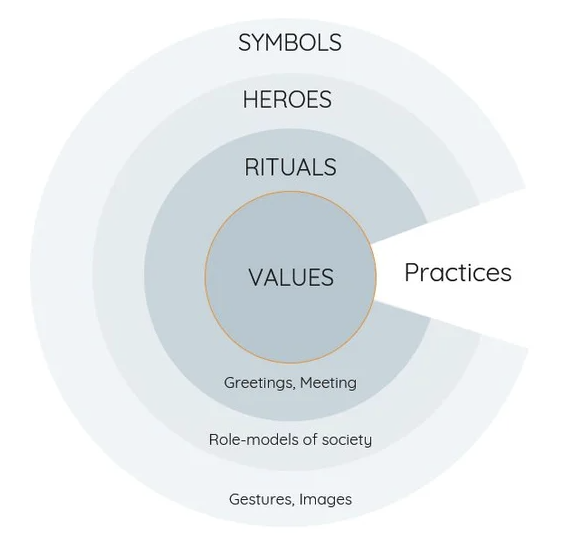The Culture Factor Group takes a well structured approach (including assessments) on the topic of organization culture.
Here are some related perspectives and notes from them:
* Definition of “culture” – “the programming of the human mind by which one group of people distinguishes itself from another group”. It is always a shared, collective phenomenon, that is learned from your environment.
* Culture consists of various layers – symbols, heroes, rituals and values.

* Organisational Culture tends to be more straightforward and precise to measure than National Culture. This is because, unlike nations, most organisations have clear objectives and requirements.
* While differences between National Cultures are most apparent in the values, differences between organisations within the same nation can most clearly be seen in the practices of the organisations. This is also why Organisational Culture, unlike National Culture, can be changed by changing those practices.
* It is never a good idea to try to apply the culture of another organisation as the optimal culture for yours. Your context is unique, the founders of the organisation are different and the economical landscape is likely to be different.
* When it comes to shaping the culture of an organisation, leadership can play a particularly important role. The leaders are the ones who have the most influence over shaping it – Are they setting the right example? Do their actions align with the organisational values?
Dimensions of Organisation Culture
* Dimension 1: Organisational Effectiveness
* Dimension 2: Customer Orientation
* Dimension 3: Level of Control
* Dimension 4: Focus
* Dimension 5: Approachability
* Dimension 6: Management Philosophy
Source: Organisational Culture, What You Need To Know; The Culture Factor Group






Recent Comments